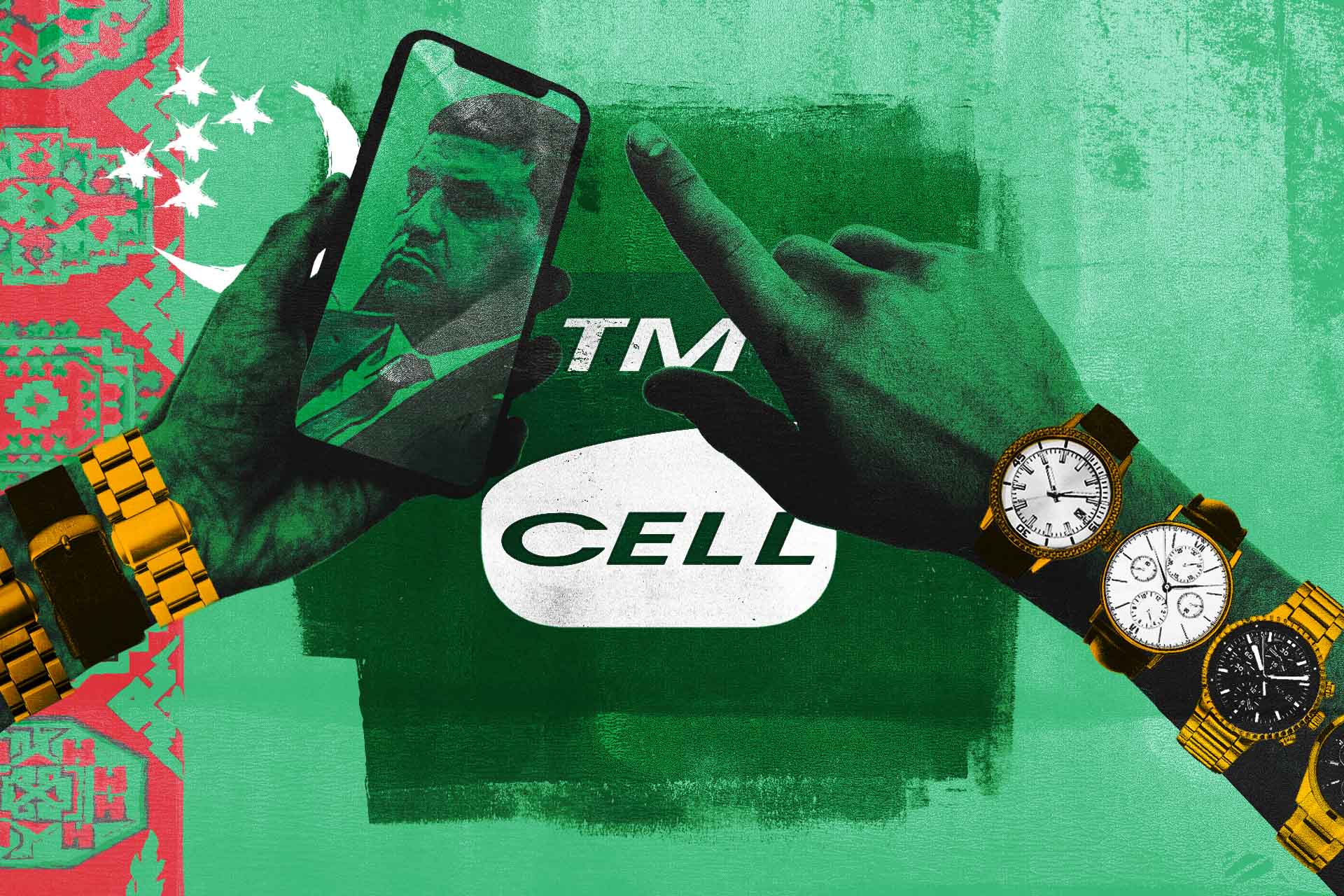
One Family’s ‘Golden Age’: Berdimuhamedov's Relative Controls Turkmenistan’s Only Mobile Operator
31.03.2022
Almost half the IP addresses in the world are already blocked in Turkmenistan. Nonetheless, the Cyber Security Service is continuing to disable ever more new subnets. This is done primarily to make money, according to turkmen.news sources. Services such as putting an IP on the white list don’t come cheap.
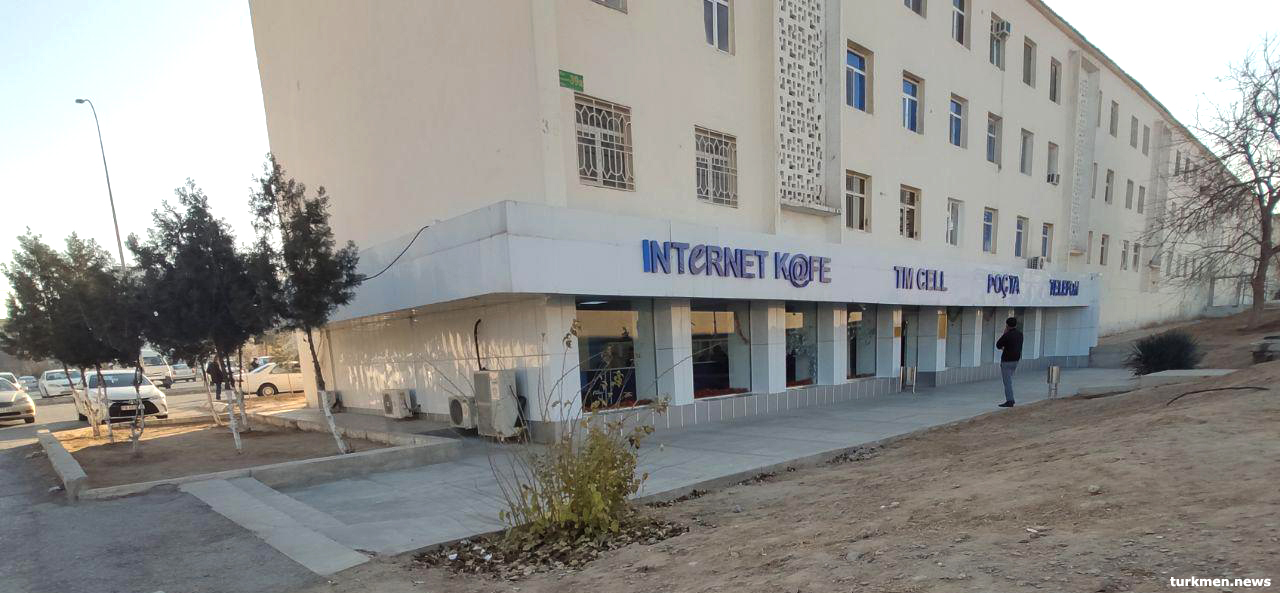
A subnet is a range of IPs beginning with identical numbers. In the last couple of years Turkmenistan has not been blocking supposedly “harmful” sites with any precision – rather it shuts down a whole subnet if, for example, a working VPN has been found there.
According to sources, if a Turkmen organization’s site is on the blocked list, the issue can be resolved for $1-2,000 a month. For this sum the site will remain accessible.
Moreover, an IP on which a VPN is running can also be included on the white list. This means the VPN continues to work and its owner’s customers can continue to visit banned sites without problem. In other words, for money the special services allow citizens to visit even those opposition sites that were the reason for the introduction of the unprecedently tough restrictions.
Observers conclude that corrupt schemes have practically become the most important purpose of the Cyber Security Service. Those who draw up the white lists have income of tens of thousands of dollars every month. What else could the purpose be? Turkmenistan’s secret State Program to Ensure Cyber Security, which turkmen.news acquired a copy of in 2022, talks a great deal about “cyber threats” without specifying what the dangers are. But whatever is meant, it’s hard to imagine that the majority of sites on the Internet would be “dangerous.”
According to data for December 2022, more than 2.5 billion IPs were blocked in Turkmenistan, while there are only around 4 billion of them in the world as a whole. In other words, a large part of the Internet is inaccessible in the country. And it’s possible to enter the sites that are still accessible only at a speed of 6 Mb/s (in other countries 100 Mb/s and above is considered normal speed).
In recent months the authorities have not even hidden the fact that they are moving towards the creation of an autonomous National Digital Network. Such a network exists today in North Korea.
But the network is going to be created by people who don’t know much about how the Internet works. Observers comment that the Turkmen special services see something mechanical in the global network. They think that if they block, for example, YouTube, it will disappear. But that’s not how it works: the YouTube server remains untouched and the Turkmen user just has to look for – and find! – ways to get round the block. It’s impossible to fully cut off the modern user from all the information that the authorities consider undesirable.
As can be seen, moreover, practically the most important factor in Turkmen politics – corruption – influences the blocking process. The “national network” is more or less turning into the “Internet for the rich.” It’s not that information is inaccessible, it’s that it’s significantly more expensive than in any other country in the world.

31.03.2022
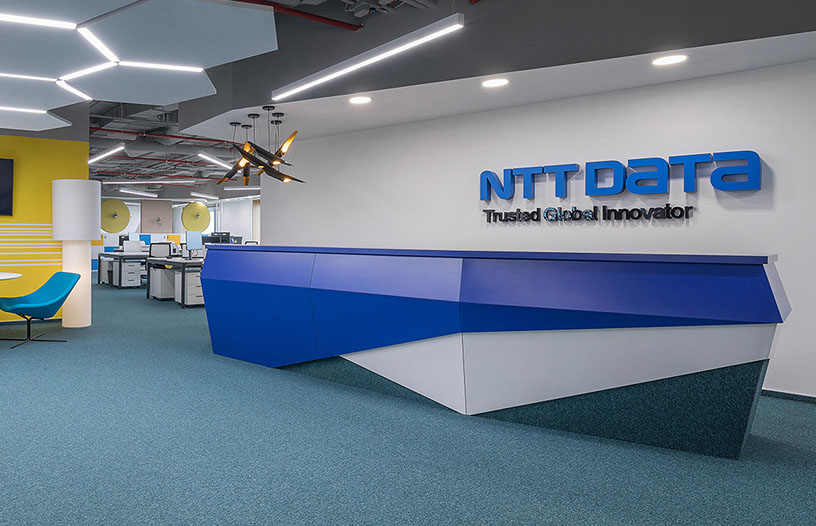
30.09.2022
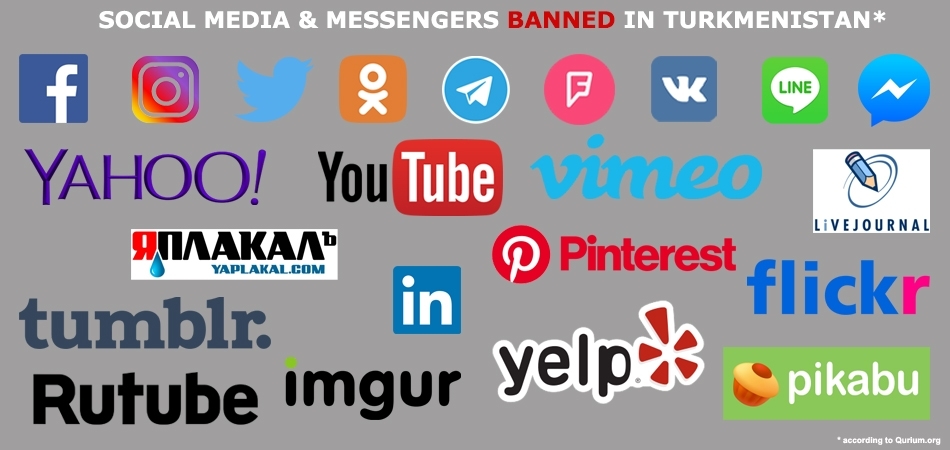
08.07.2019

Petrofac Back in Favour in Turkmenistan After Falling Foul of Berdimuhamedov
18.03.2024

Murder and Suicide at Troubled Turkmen School
28.02.2024

Turkmen Prosecutor’s Office Claims Baloch Detainee’s Fatal Wounds Were Self-Inflicted
01.02.2024
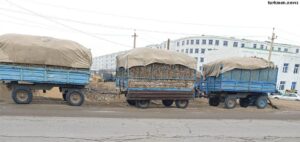
Low Prices Lead Turkmen Farmers to Sell Cotton Harvest Residues for Fodder
19.01.2024

Young Man Tortured to Death by Law-Enforcement Officers in Turkmenistan (video)
21.12.2023
Tell us!
Add comment
your e-mail will not be published